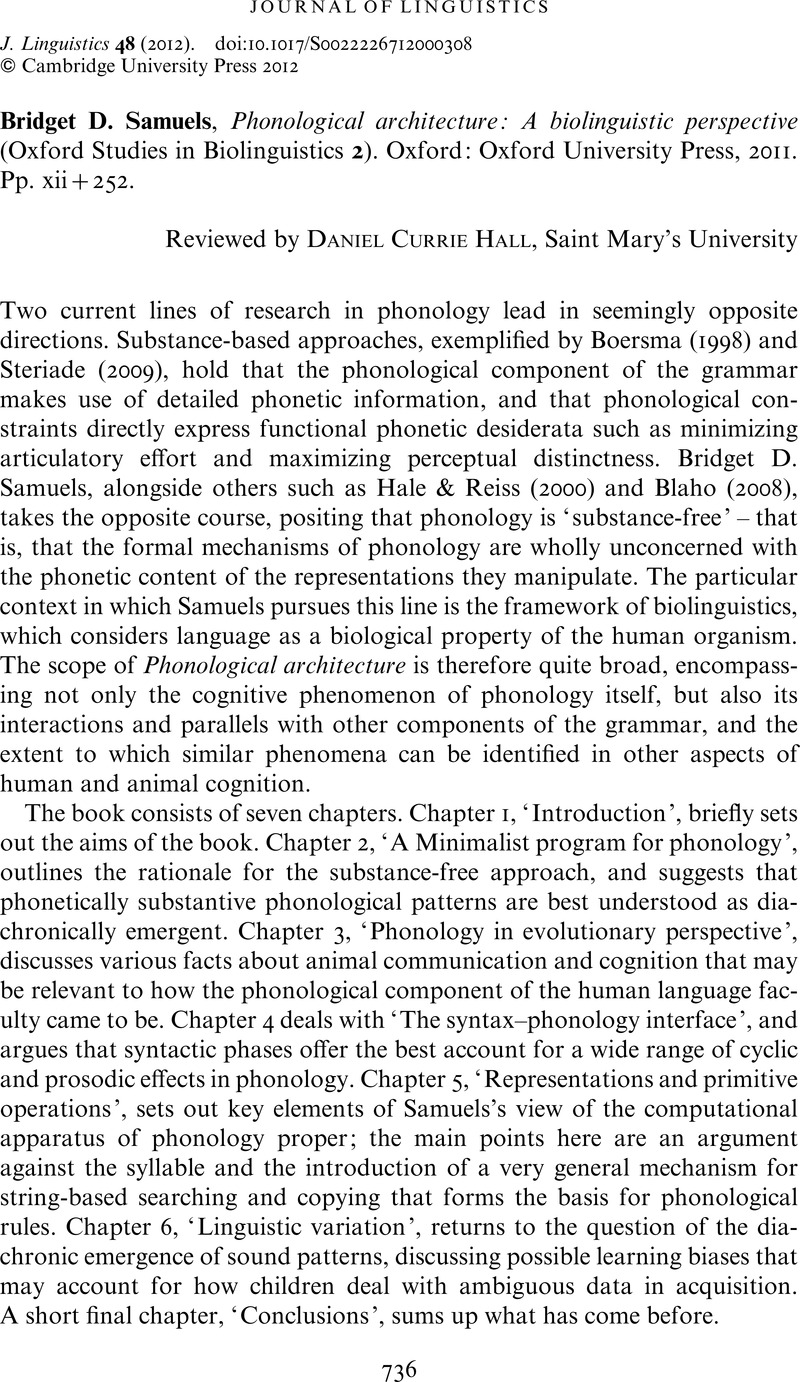Steriade, Donca.
2009. The phonology of perceptibility effects: The P-map and its consequences for constraint organization. In
Hanson, Kristin &
Inkelas, Sharon (eds.),
The nature of the word: Studies in honor of Paul Kiparsky,
151–
179.
Cambridge, MA:
MIT Press.
Google Scholar 